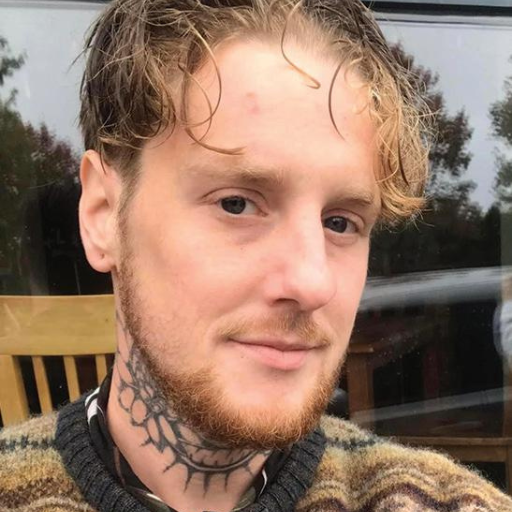This November, Brian Burch celebrates three years of sobriety and successfully completes his three-year probation, signifying the beginning of a new chapter filled with music, connections, and giving back to the community that helped him get here.
Among other things, he hopes to return to the reentry center in Belfast—where he learned guitar—to teach others to play.
Brian was born and raised in Rockland. At 13, he had already begun smoking cigarettes, using cannabis, and drinking, but his introduction to painkillers at 14 made him feel like a switch had been flipped.
Opioids gave him the confidence and motivation that so many teens struggle with. By the time he turned 18, he already had multiple warrants for his arrest. From 18 to 27, he was in and out of jail and prison, with the longest period of freedom being just eight months.
Brian’s mindset, victim mentality, and perception of authority were heavily influenced by his formative years spent in incarceration and active addiction. He believes that the legal system is structured to see people fail, especially those with
substance use disorders. “Putting someone behind bars without any resources is like stopping a clock,” he says. “That clock just continues where it left off when they’re released.”
In 2018, Brian became one of the first seven people offered an alternative sentence of two years at the Maine Coastal Regional Reentry Center (MCRRC) in Belfast, followed by three years of probation…
Founded by Volunteers of America Northern New England in partnership with the Maine Department of Corrections and other local agencies, the center helps incarcerated men develop the skills needed for a successful return to their communities.
Brian credits the MCRRC and Volunteers of America with saving his life and the lives of others who are ready for change.
An act of mercy played a significant role in Brian’s readiness for change. When he failed two urine tests while at the MCRRC, he was sure he would be sent back to prison. However, the reentry team decided to give him another chance.
This instilled determination in Brian to prove to himself and others that he could change. “I could tell it
was different this time; my family could too,” he says.
Brian played a role in advocating for some of the center’s policy changes, such as revising zero-tolerance drug testing and allowing residents to start medication-assisted treatment before leaving the center.
For those like Brian, whose journeys involve medication-assisted treatment, learning how to take these medications responsibly before reentry can make the transition smoother. Brian believes this was a matter of relapse prevention, and life or death.
At the MCRRC, Brian had to unlearn years of distrust of law enforcement, selfishness, and feeling victimized. He was able to build relationships with residents, staff, and corrections officers who made him feel seen and valued.
One particular corrections officer, who engaged in conversations and
played chess with the residents, remains a friend to this day.
Brian’s family has been a constant support during his journey.
Following release from the center, Brian moved to Belfast to put distance between himself and the places where the crimes of his youth had been publicized. “Getting your reputation back is hard work,” he says. “You make peace with the fact that some people will never believe you can change, and move on.”
In the years following his release from the MCRRC, Brian developed a deep passion for music that continues to drive him today. He performs at recovery events and in the community, using music as therapeutic expression to replace the void left by addiction. ”Addiction is all-consuming, and I didn’t have the patience to enjoy anything then,” says Brian. Before recovery, I never had the time, patience, or willpower to pursue my dream of being a musician.”
Today, Brian maintains connections with the people he met and formed close bonds with during his time at the MCRRC. Musical Expression continues to play a large role in his recovery and is a gift that gives back to all those who get to hear him play.
Whether it’s spent making music, or going to work, every day is a chance for Brian to be grateful for an opportunity to build for his future.
“When I head home I feel like I’ve done something every day. I’m going to do whatever it takes to build this thing into something to be proud of.”
Jamie Lovely is a Certified Prevention Specialist and LMSW at Penobscot Bay Community Health Partnerships. She is passionate about using her experience in journalism and social work to write recovery stories that fight stigma and inspire hope.



